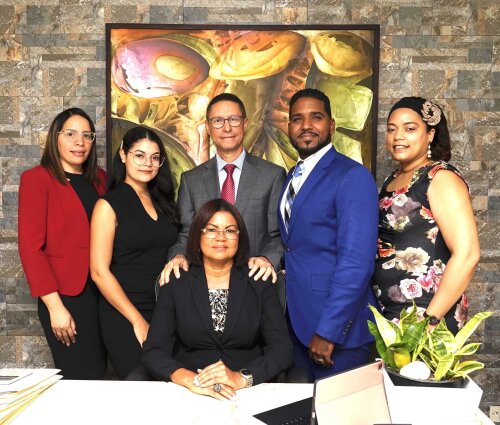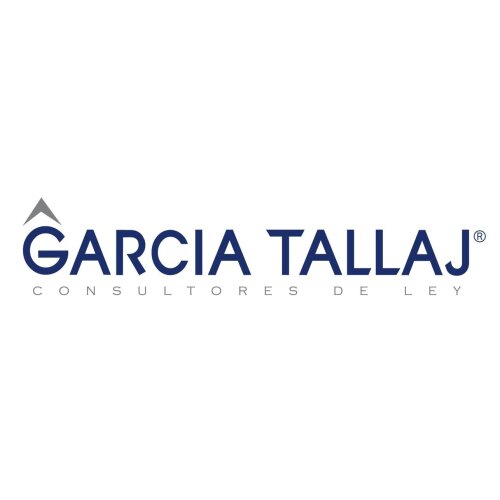Best Domestic Violence Lawyers in Sosua, Cabarete
Share your needs with us, get contacted by law firms.
Free. Takes 2 min.
Free Guide to Hiring a Family Lawyer
List of the best lawyers in Sosua, Cabarete, Dominican Republic
About Domestic Violence Law in Sosua, Cabarete, Dominican Republic
Domestic violence is a serious concern in Sosua, Cabarete, and throughout the Dominican Republic. It includes physical, emotional, psychological, sexual, or economic abuse by one person against another in a domestic setting, such as marriage or cohabitation. The Dominican Republic has made significant efforts to address these issues, especially in popular tourist regions like Sosua and Cabarete, where local authorities collaborate with various organizations to protect victims and enforce legal consequences for perpetrators.
Why You May Need a Lawyer
There are many reasons individuals seek legal assistance for domestic violence cases in Sosua and Cabarete. Common situations include:
- You are a victim of domestic violence and need protection or guidance on pressing charges.
- You have been accused of domestic violence and need legal defense to ensure a fair process.
- You need help obtaining a restraining order (orden de alejamiento) against an abuser.
- You are a foreign resident or tourist unsure of the local laws or court procedures.
- You have concerns about your legal rights and obligations in family-related matters.
- You require support in navigating language barriers or accessing local authorities.
Local Laws Overview
The Dominican Republic classifies domestic violence as a criminal offense. Law 24-97 is the principal regulation, which amended the Penal Code to define and punish domestic violence, including physical, psychological, and sexual aggression. Local law enforcement officers in Sosua and Cabarete are trained to respond promptly to domestic violence reports.
Key aspects relevant to victims and accused persons include:
- Zero tolerance policy toward domestic violence with enforced criminal penalties for offenders.
- Victims can seek immediate protection measures, such as restraining orders or removal of the abuser from the home.
- Both nationals and foreigners have the right to legal protection and to press charges.
- Cases are typically handled by the local Fiscalía (Prosecutor’s Office), with police support.
- Specialized courts and units exist to address gender-based violence.
Frequently Asked Questions
What constitutes domestic violence in Sosua and Cabarete?
Domestic violence includes any physical, psychological, sexual, or economic abuse within a family or intimate relationship. This applies to married, cohabitating, or separated partners, as well as between parents and children.
I am a foreigner. Can I report domestic violence in Sosua or Cabarete?
Yes, both locals and foreigners have the right to report domestic violence and seek legal protection under Dominican law.
What should I do if I am in immediate danger?
If you are in immediate danger, call 911 or go to the nearest police station. Police officers are mandated to respond to domestic violence cases and can offer immediate assistance.
How do I file a complaint about domestic violence?
A victim or witness can file a complaint at the local fiscalía (prosecutor’s office) or police station. Legal assistance may be helpful to guide you through this process, especially if you do not speak Spanish.
What legal protections are available for victims?
Victims may request restraining orders, emergency protection measures, and removal of the perpetrator from their home. Authorities might also provide temporary housing and medical care referrals if needed.
Are there shelters or support services for victims in Sosua or Cabarete?
There are local organizations and government agencies offering support, counseling, and temporary shelter to victims. The Fiscalía and local women’s advocacy groups can direct you to these resources.
Can a perpetrator be arrested right away?
Yes, if there is sufficient evidence or if the victim is in danger, the police may arrest the alleged perpetrator immediately while the investigation is ongoing.
Do I need a lawyer to report domestic violence?
It is not mandatory but is highly recommended. A lawyer can explain your rights, help you complete paperwork, represent you in court, and ensure proper legal procedures are followed.
How long does the legal process take?
Timelines vary based on the case’s complexity and evidence. Emergency measures like restraining orders can be issued quickly, while full investigations and trials may take several months.
What penalties can an offender face?
Penalties depend on the severity of the offense and may include fines, imprisonment, restraining orders, and mandatory counseling or rehabilitation.
Additional Resources
If you need assistance or information regarding domestic violence, here are important resources in Sosua, Cabarete, and nationwide:
- Local Police Stations: First point of contact for emergencies and incident reports.
- Fiscalía (Prosecutor’s Office): Handles criminal complaints and legal procedures.
- Ministry of Women’s Affairs (Ministerio de la Mujer): Provides support, legal advice, and referrals to shelters.
- National 911 System: For immediate assistance and intervention in critical situations.
- Local NGOs: Local women’s rights or victim support groups often offer counseling, translation, and shelter referrals.
Next Steps
If you or someone you know is facing domestic violence in Sosua or Cabarete, consider taking these steps:
- Seek immediate safety if you are at risk - contact the police or 911.
- Visit the local prosecutor’s office (Fiscalía) to file a formal report.
- Consult with a local lawyer familiar with domestic violence law in the Dominican Republic. A lawyer can help you understand your rights, file necessary legal documents, and represent your interests.
- Reach out to support organizations or the Ministry of Women’s Affairs for counseling and possible shelter arrangements.
- Collect any evidence you may have, such as messages, photographs, witnesses, or medical reports, to support your case.
- Keep records of all interactions with authorities and service providers.
Remember, both locals and foreigners are protected under Dominican law, and there are resources available to help you through the process. If you are unsure where to start, consulting a local lawyer is often the most effective first step.
Lawzana helps you find the best lawyers and law firms in Sosua, Cabarete through a curated and pre-screened list of qualified legal professionals. Our platform offers rankings and detailed profiles of attorneys and law firms, allowing you to compare based on practice areas, including Domestic Violence, experience, and client feedback.
Each profile includes a description of the firm's areas of practice, client reviews, team members and partners, year of establishment, spoken languages, office locations, contact information, social media presence, and any published articles or resources. Most firms on our platform speak English and are experienced in both local and international legal matters.
Get a quote from top-rated law firms in Sosua, Cabarete, Dominican Republic — quickly, securely, and without unnecessary hassle.
Disclaimer:
The information provided on this page is for general informational purposes only and does not constitute legal advice. While we strive to ensure the accuracy and relevance of the content, legal information may change over time, and interpretations of the law can vary. You should always consult with a qualified legal professional for advice specific to your situation.
We disclaim all liability for actions taken or not taken based on the content of this page. If you believe any information is incorrect or outdated, please contact us, and we will review and update it where appropriate.










